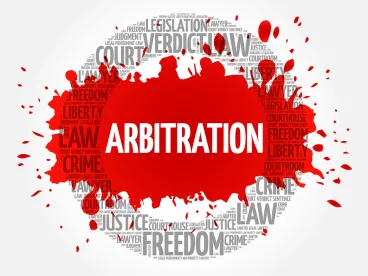The COVID-19 pandemic has prompted many State actions in pursuit of the public interest, but while all States have faced this unprecedented global challenge with some degree of similarity, State responses have varied from one jurisdiction to the next in terms of the timing and severity of governmental measures imposed. As the pandemic swept the globe last year, the United Nations Conference on Trade and Development (UNCTAD) observed the following:
State measures to limit the adverse economic impact of the pandemic are manifold and vary from one country to another. Although these measures are taken for the protection of the public interest and to mitigate the negative impact of the pandemic on the economy, some of them could, depending on the way they are implemented, expose governments to arbitration proceedings initiated by foreign investors under IIAs [International Investment Agreements] and/or investor-State contracts.1
While the sovereign right to take action to protect public health is unquestionable, it does not necessarily follow that a State has acted non-discriminatorily or generally upheld its public international law obligations to promote and protect foreign investment simply because a measure is taken at a time of pandemic. Foreign investors may feel strongly that they have been wronged by such measures, particularly where the result has been devastating to the investor. Even so, the public health context and related imperatives for State action in the midst of a pandemic are undeniable, and any analysis of the potential for a foreign investor to pursue a claim in investor-State dispute settlement (ISDS) must be conducted thoughtfully and in light of all available evidence. This article briefly considers some important considerations that should be factored into any cost-benefit analysis of whether and how foreign investors impacted by government measures related to the pandemic should pursue any available claims.
MERITS OF THE CLAIM
One of the first steps in evaluating any ISDS claim is to conduct a preliminary assessment of the merits of the case, including the elements of the claim and any applicable limitations that may exist under the relevant IIA or other legal instrument under which the dispute arises. Relevant treaty instruments may include bilateral investment treaties (BITs) or other treaties with investment provisions (TIPs), such as free trade agreements (FTAs), which often contain dedicated investment chapters. Such applicable treaty instruments will generally outline key details in relation to available ISDS claims, but certain circumstances precluding wrongfulness also exist as defences for Host States under customary international law. Of the six such defences described in the International Law Commission’s draft Articles on Responsibility of States for Internationally Wrongful Acts (2001), the most likely grounds upon which Host States may rely in relation to pandemic-related claims are Force Majeure, Distress and Necessity. Of course, States may also seek to invoke the “Police Powers Doctrine,” which recognizes the inherent right of the State to regulate in the public interest, including with respect to public health. As a general matter, such defences have historically been intended to apply only in a narrow range of circumstances and have only rarely been deployed successfully. Given the current pandemic, however, a resurgence of interest in such defences is likely, and investors should carefully consider all such factors in any preliminary merits assessment.
AVAILABILITY OF COMPENSATION
Another factor that may be determinative of whether an investor should proceed with a claim against a Host State is whether compensation may be available and, if so, the likely recovery from any successful arbitration. Unless the relevant treaty instrument contemplates a given compensation standard, tribunals generally have significant discretion to determine compensation based on the facts and circumstances of the instant case. Where claimants are awarded compensation, it is relatively common for tribunals to award at least the historic costs of the investment (i.e., the relevant expenditure already incurred by the investor).
A key question for investors to consider may be whether they will also be able to claim damages arising from lost profits, i.e., profits that the investor would have made had the relevant treaty breach not occurred. Given that many investments can have lifetimes of several decades, this is often the most significant element of an investor’s claim. Tribunals will only allow this head of claim, however, if such future profits are sufficiently certain as opposed to speculative, perhaps as demonstrated by a proven track record of profit-making or on the basis of fixed contracts in place with customers (such as may be the case in new power plant projects with contractual arrangements for future output).
TIME AND COSTS
The types of costs incurred in ISDS proceedings include administrative fees, tribunal costs and party costs (e.g., costs incurred for legal counsel or expert witnesses, travel costs, and other logistical expenses). The amounts at stake in ISDS proceedings are often substantial, and the nature of the legal, factual and quantum issues can be complex. Accordingly, the associated costs and duration of proceedings are important considerations in any cost-benefit analysis of whether and how to pursue ISDS claims.
The primary institutional rules used in investor-State arbitration (i.e., ICSID and UNCITRAL) also grant tribunals wide discretion as to the amount and apportionment of costs. On apportionment, tribunals often order that each party pay its own party costs as well as its share of tribunal costs. There is a growing trend in tribunal practice, however, toward ordering costs on a “loser pays” basis (i.e., the unsuccessful party pays the costs of its successful opponent). When assessing the amount of such costs, tribunals are not required to consider whether the costs were “reasonable” or “proportionate” (as is sometimes required in domestic court proceedings in certain jurisdictions such as England and Wales). Given the above, investors have increasingly been turning to third-party funding (TPF) as an effective way of managing risk associated with ISDS proceedings. In determining its recovery, a funder will consider a variety of factors that are unique to each claim (including the ratio of recoverable damages to the costs of pursuing the claim through to final recovery and, of course, the merits of the claim). The precise terms of the funder’s return will be set out in detail in the funding agreement. For investors, these are important considerations that can, of course, cut both ways.
ENFORCEMENT
Many States (but not all) generally comply with investor-state arbitration awards voluntarily due to reputational risks (and potentially diplomatic and political pressure). Should enforcement be necessary, however, the ICSID Convention (in respect of ICSID awards) and the New York Convention (in respect of other awards) operate by requiring each signatory State (of which there are 156 and 168 respectively) to enforce the award in question as if it were a judgment enforceable by its own domestic courts. Even so, enforcing an investor-State arbitration award under these Conventions is not entirely insulated from the domestic laws and court procedures of signatory States, especially with regard to sovereign immunity. The enforcement stage can be time-consuming, and investors should carefully consider the possible jurisdictions in which enforcement may be required as well as the laws regarding execution against sovereign assets in those jurisdictions.
RELATIONSHIP WITH THE HOST STATE
Another critical consideration in any cost-benefit analysis for determining whether to pursue potential claims in ISDS is the potential impact that commencing ISDS proceedings may have on an investor’s relationship with the Host State. Of course, the circumstances of each investment are unique, and the impact on the investor-State relationship will be equally situationally-specific. In some cases involving unlawful expropriation of an entire investment, an investor may have little or no remaining relationship with the Host State at all. In other cases, however, such as where future investments are anticipated in the relevant territory, a more delicate approach to pursuing an investor’s legal rights while retaining a reasonable working relationship with the Host State may be preferable.
CONFIDENTIALITY
Investor-State arbitration proceedings are generally less confidential than international commercial arbitration proceedings, and awards and pleadings are often publicly available. Given the inherent political dimension of ISDS, such disputes can also attract media attention and investors may need to be prepared to manage public communications. Additionally, claimants that are public companies often have disclosure obligations in relation to contingent liabilities and share-price sensitive information so that arbitration proceedings may have to be disclosed to comply with legal or regulatory requirements, and the investor’s share price could be impacted. Again, such considerations should be included where relevant in any cost-benefit analysis of whether and how an investor should pursue pandemic-related claims in ISDS.
CONCLUSION
Whilst a number of factors such as those referenced above should be considered carefully by foreign investors, it is also vital that competent and insightful legal advice be sought throughout the lifetime of any potential dispute, from pre-arbitral negotiations to the enforcement of any arbitral award. Such advice may very well assist with mitigating the costs associated with ISDS proceedings as well as with optimising an investor’s potential outcome.
FOOTNOTES
1 UNCTAD, Investment Policy Monitor, Special Issue No.4, May 2020




 />i
/>i

